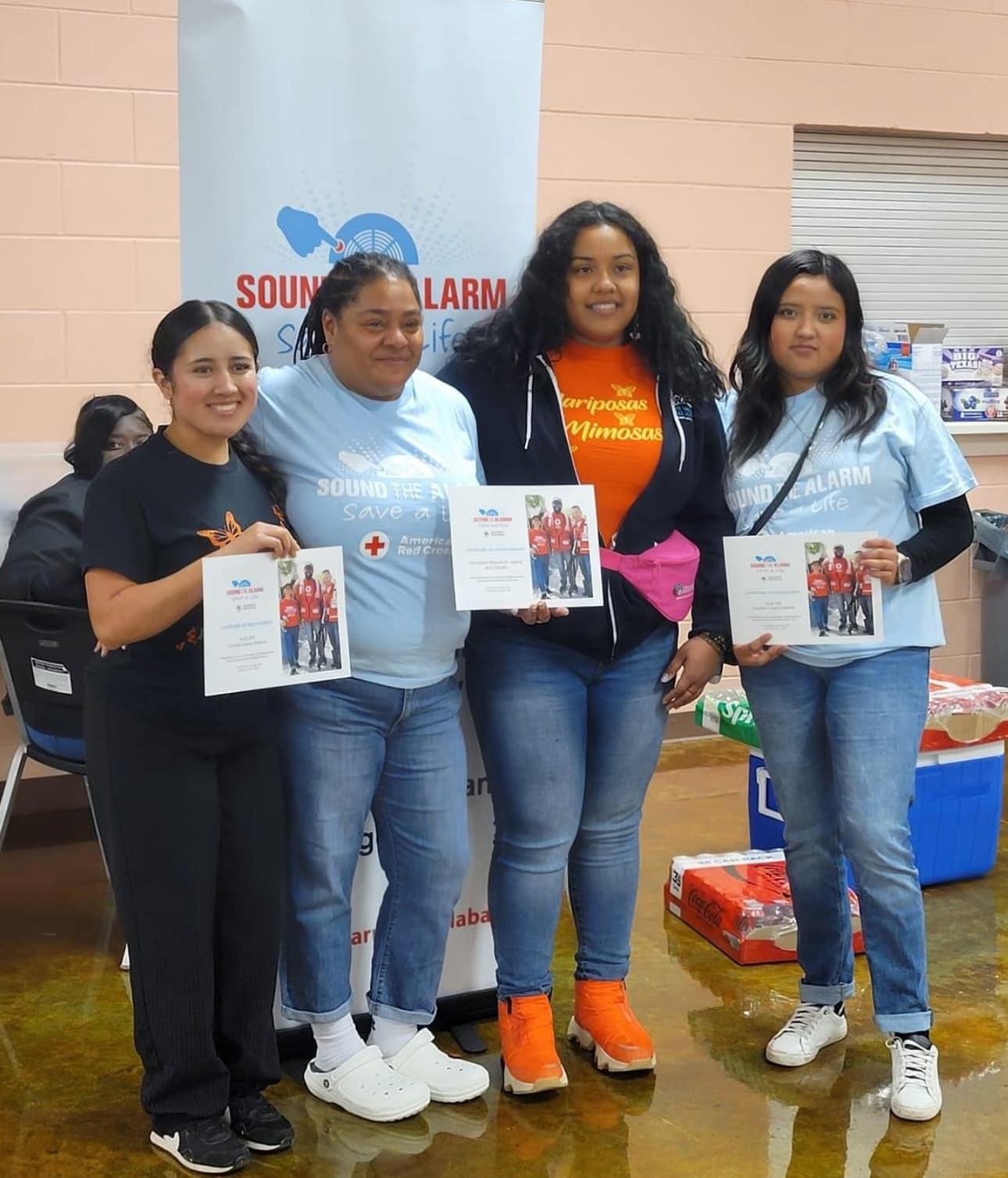Most of that work looked like distributing essential supplies to over 120 families represented in many of Mississippi’s latino and migrant communities, such as in Jackson, Carthage, Morton, Forest and Cleveland.
Through biweekly meetings, the promotoras collaborated to form and lead committees within their respective communities that Quiroz says serve, by design, as a form of infrastructure of support and empowerment.
But the program also featured an additional year, training the women in community preventive health services like CPR and first aid, as well as screening for and spotting the symptoms of conditions like hypertension or type 2 diabetes – diseases that are especially present in impoverished communities due to a lack of awareness or social barriers to accessing care.
Combined with training in how to educate residents on the risks of sexually transmitted diseases, Quiroz says this approach has already shown signs of being transformational for the very communities the promotoras call home.
“Our communities are known for being very conservative – for example with reproductive justice or STD’s because of religious views or being new and not knowing the language [here],” said Quiroz. “One of the most interesting conversations happened at the end of the program, because we gained so much trust, and they were able to ask questions that in my 20 years of experience people were not able to get from the community.”
“So what they’re learning, and the doors they’re opening and encouraging other people to do as far as education and preventive health, that’s really going to have a huge impact for immigrants in Mississippi.”
‘We see this just as a little seed’
Yudenia Tiza, a Cuban educated and trained medical doctor with a castilian accent defining both her spoken Spanish and English, migrated to Mississippi after a medical career in her home country, as well as many years spent working in Venezuela.
The program’s medical manager, Tiza says she modeled the preventive health portion of the program after her own experience as a physician offering primary, emergency and critical care – and believes that approach can better address the unique needs of many migrant communities across the state.
“When I arrived in Mississippi in particular, I noticed there’s a lot here we can do if we’re in charge. Education is the key – we need to share information that is based in science and that will help our communities,” she told MPB News.
“At the beginning I never imagined the impact of this program, but now having become more conscious of the situation, all of the promotoras and everyone in the community here has something important to share. Sometimes we’re waiting for the perfect moment, but the time is today.”
Some of those unique needs often present as barriers – those of language, education, accessibility challenges like a lack of transportation or a lack of health insurance.
In the event someone seeking care might be undocumented, the persistent fear of deportation can also dissuade residents of Mississippi’s Latino migrant communities from seeking care until it’s too late, or causes them to miss periodic screenings recommended by age.
It’s in those instances, Quiroz says, where the healthcare disparities already prevalent in these communities become even more of a challenge – and why the promotoras program combined social organizing and preventive health training into one curriculum.
“They not only know about these preventive health measures, but they also know the law and they know their rights. They know to ask for interpreters and the things that are due to them as human beings. So we just see this as a little seed, and we’re just going to grow and grow.”
Mississippi Edition executive producer Kobee Vance contributed audio reporting to this story.





